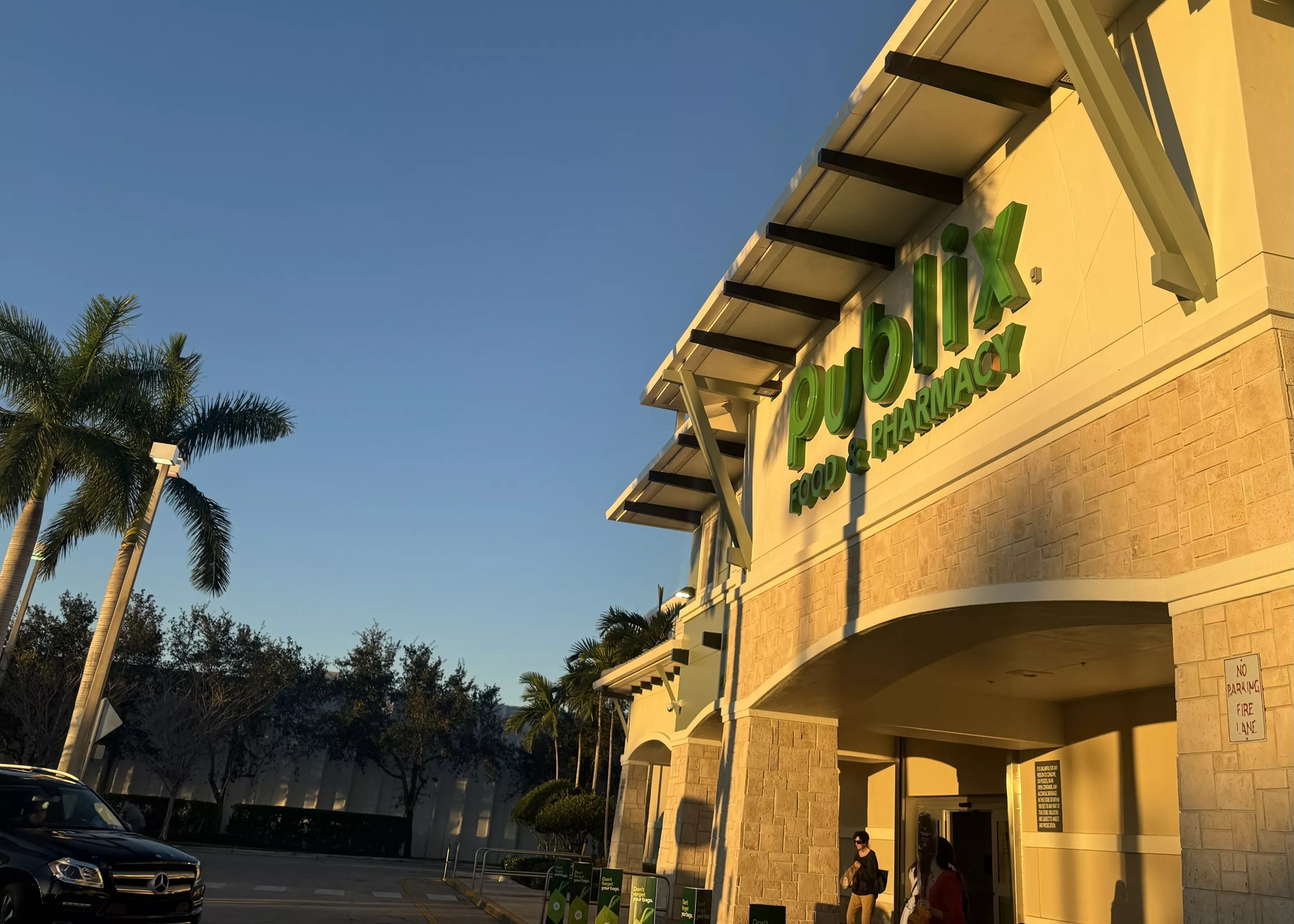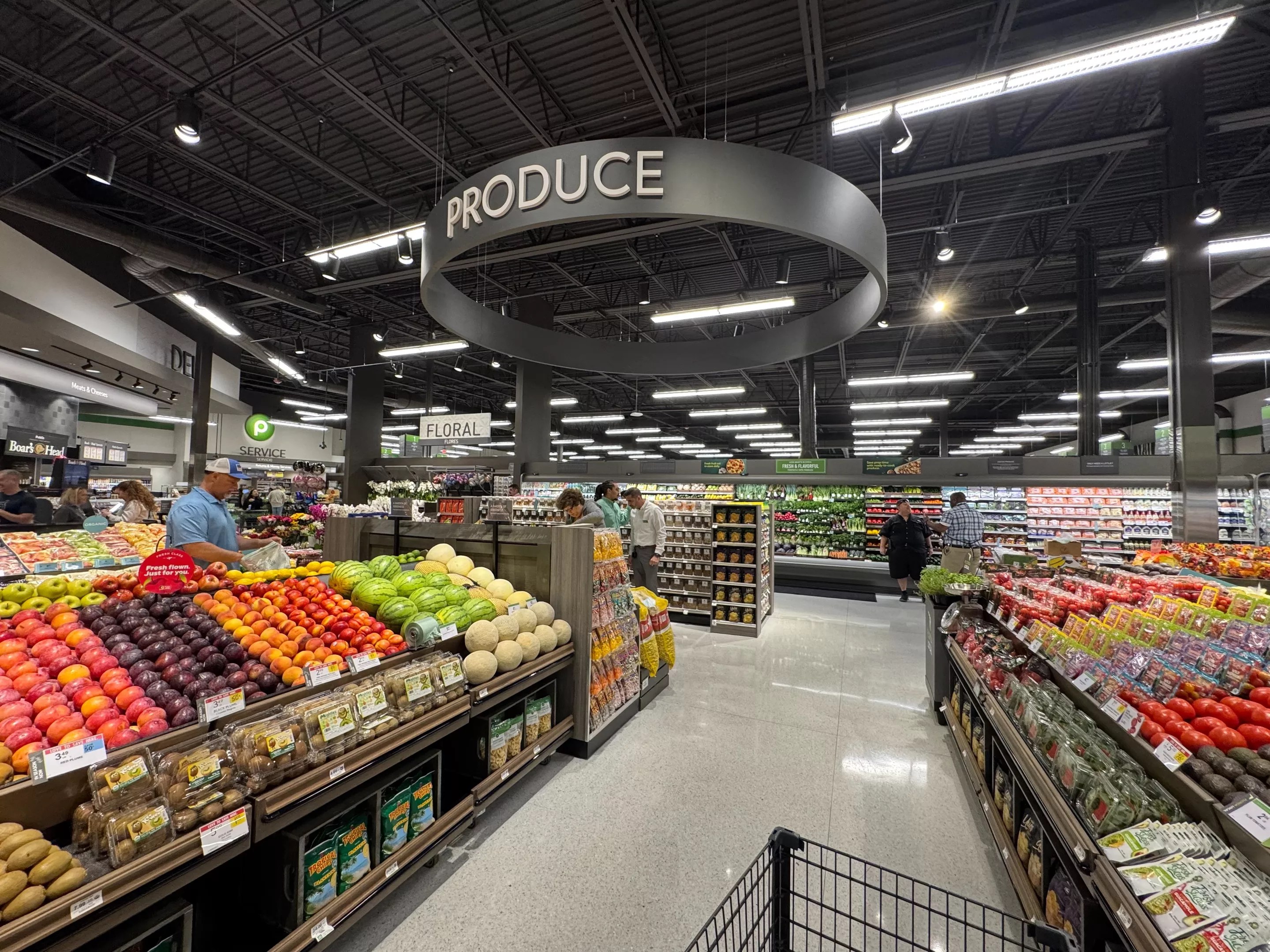
Photo by Nicole Lopez-Alvar

Audio By Carbonatix
A Tampa woman has accused Publix of pulling a fast one at the checkout counter. She alleges that the Florida supermarket giant uses self-checkout scales to inflate the weight of meats and cheese, jacking up prices and negating advertised discounts.
Wendy Koutouzis filed a lawsuit in late February in federal court claiming she found the practice at five Tampa Publix locations, where she says she documented instances of the chain’s point-of-sale system adding phantom weight to sale items, according to reporting by the Miami Herald. The class-action complaint asks for damages not just for Koutouzis but for all Publix shoppers who may have faced similar overcharges.
Publix, the nation’s fifth-largest grocery seller, according to consumer tracker numerator.com, declined to address the allegations. “It would be inappropriate for us to comment on pending litigation,” company spokeswoman Lindsay Willis told the Miami Herald.

The lawsuit claims, allegedly, that the weights are exaggerated at self-checkout, but this has not been verified.
Photo by Nicole Lopez-Alvar
Phantom Pounds at the Register
In one example detailed in the lawsuit, Koutouzis purchased extra lean pork tenderloin advertised at $4.99 per pound, down from the regular $6.99 price. The package showed a weight of 2.83 pounds, which should have cost $14.12 at the sale price. However, the lawsuit alleges that when scanned at self-checkout, the system weighed 3.96 pounds and charged $19.78-the same price the meat would cost at its regular, non-sale price.
“Most customers do not realize that the weight of the product has changed because Publix’s [point of sale] is programmed so that the total price of the product matches the total price on the customer’s receipt or the POS screen, so as to avoid detection,” the lawsuit claims.
The receipt cited in the lawsuit claimed a savings of $7.92. That figure would represent the discount on a 3.96-pound package at the sale price, not the 2.83-pound package Koutouzis says she purchased.
Yesterday’s Sales, Today’s Prices
The lawsuit doesn’t stop at weight discrepancies. Koutouzis also claims Publix deliberately leaves expired sale signs to lure customers. Court filings include examples of Granny Smith apples marked with sale signs for $1.99 per pound at the 4900 Kennedy Blvd. and 8701 W. Hillsborough Ave. stores in Tampa, but the registers charged the regular $2.69 per pound, the Herald reported.
Koutouzis says she notified Publix of incorrect sale signs, but according to the lawsuit, “Publix deliberately leaves the old signs up so customers think there is a sale. “
Publix is Where Every Employee Is an Owner
The lawsuit highlights that Publix’s structure as “the largest employee-owned company in the United States” creates a situation where workers have little incentive to address checkout problems that boost the company’s bottom line.
“Employees, including cashiers, customer service attendants, and department managers, do not only fail to alert customers, but insist purposely that the customer is wrong, and that the savings were already applied,” the lawsuit claims.
Online, many Publix shoppers have pointed to the company’s “Publix Promise” – a price guarantee stating that if an item scans at a price higher than the shelf or advertised price, customers receive one of those items free, and the rest at the correct cost.
But if Koutouzis’ allegations prove true, the grocery chain’s famous promise might be worth about as much as last week’s rotisserie chicken – especially if shoppers never notice they’re getting the short end of the scale.